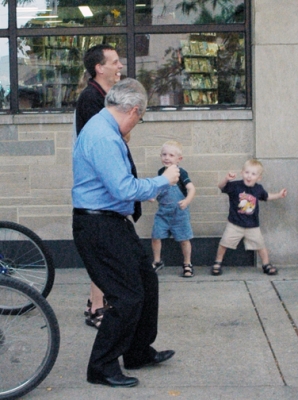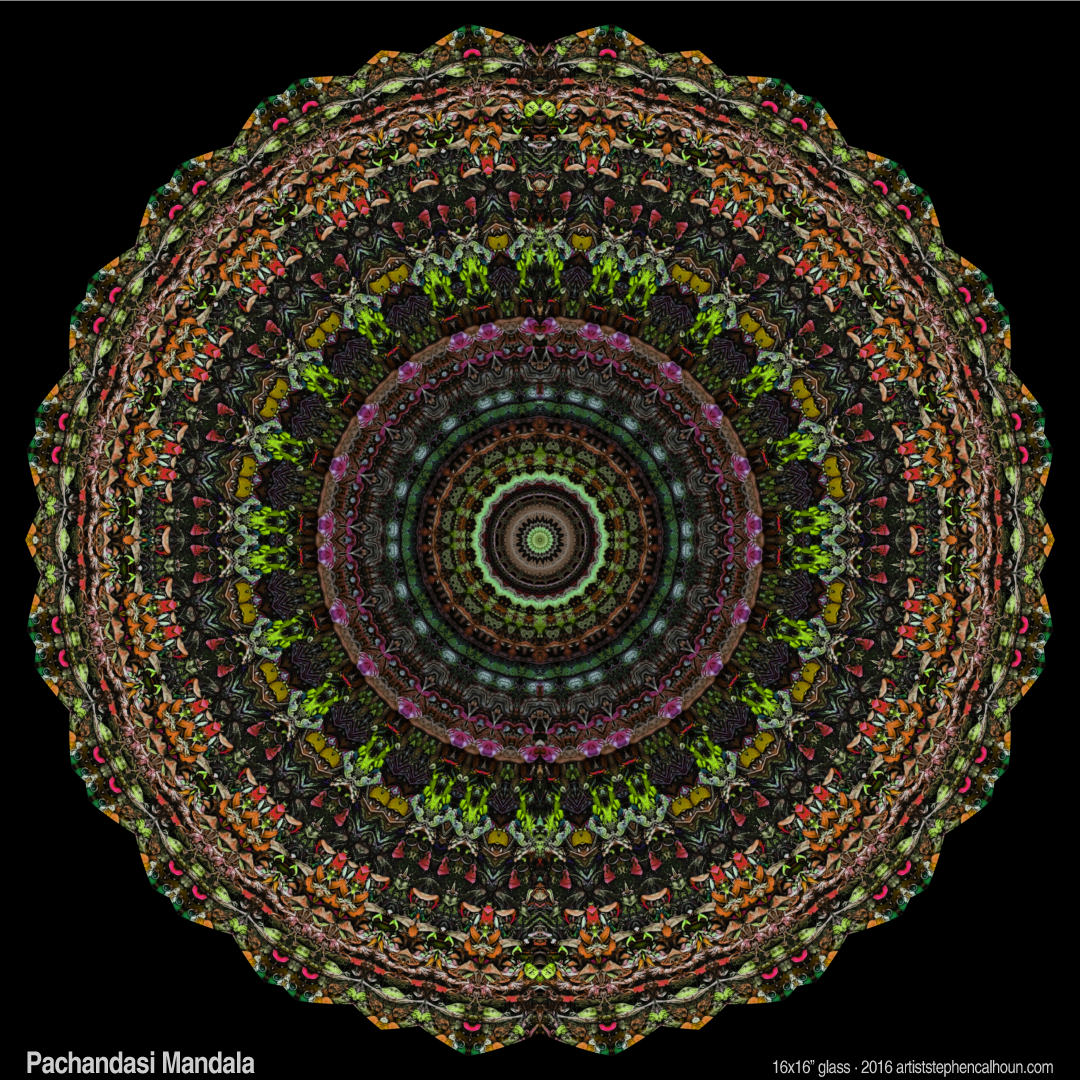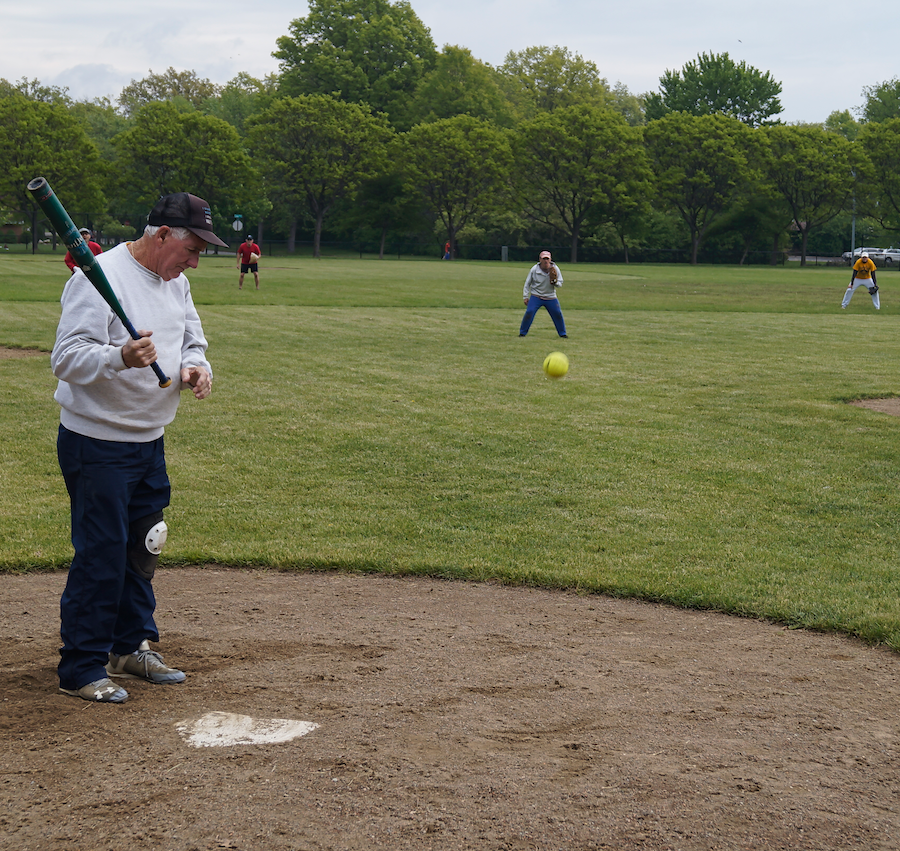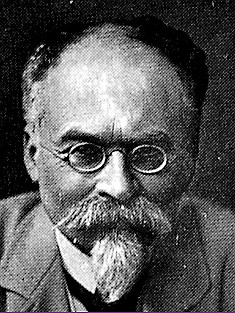Epistemology establishes how we understand reality, what we believe the world to be made up of. If library directors do not have a way of knowing what is, how are they to know how to act in a time of crisis? (Phenomenology, Aesthetics, and Planning for the Artful Library Director, Kenneth Warren, 2014)
Monthly Archives: May 2017
Make It All Up
Straight ‘Poiethics’ But With a Beat
NOWHERE TO RUN
There’s nowhere
to run in marriageWorking and paying everyday
for wanting her,But if you’d leap,
like Screamin’ Jay Hawkins,Past the shadow curved around her,
into whatever’s left in your coffin,You could rip free
from her wine sackYour Noah, your Pip,
your keel, your breaker,And sail with them
into the raging wave to come.Ken Warren (1953-2015)
h/t Joe Napora, who posted this on
honoringkenwarren
Life is for
the living,
death is for
us all.
(Abdullah Ibrahim)
Filed under Cleveland, Kenneth Warren, poetry, sufism
Free Play Futility and the solidarity of variability
Free Play Softball League, a confrere open to anyone 16-96 who has the chops to enjoin a game that references an ethic, that a game may be literally played as an experiment in learning how to play the game itself, and, additionally, references the variability of human nature.
The affectual ecology of the latter comes to fault the enjoining ethic. That this ethic is referenced, rather than it is something to anchor to, was obvious in our third week of the new season.
A group of five elders, including myself, came to be convened prior to the second game so that we could figure out between ourselves how to dial back several behaviors that have become too woven into the game. The motivation to do this was to reset the game’s overly competitive mood for the sake of making the game more inviting for new players.
We established a protocol for transforming the way the game processes controversies. Such controversies are one of three grounds for negative behavior. (The other two are: disparaging other player’s actions, and, rooting against the opposing team.) Last Sunday the protocol, centered on eliminating arguing by situating the decision in only the judgment of the two team captains, got completely ignored in the one instance it was called for.
Actually, what happened was worse than this summary, although the argument itself was not terribly intense.
Transformation is difficult.
I violated the prohibition against disparagement when I became impatient at the plate, and beseeched the opposing pitcher.
patience, n. A minor form of despair, disguised as a virtue. (Ambrose Bierce)
Transformation is difficult.
Filed under adult learning, play
As If, a yoga of the practice of irony in a cosmos of contingency
A leading moral and political philosopher, Kwame Anthony Appiah is Professor of Philosophy and Law at New York University. He explores the ideas of the philosopher Hans Vahinger, who argued that our theories of the world involved understanding things “as if” what is in fact false were true.
via: http://gradlectures.berkeley.edu/lecture/
I had begun this article with reference to Hans Vaihinger’s examination of the two simple words, as-if, which he posits as a fictive device. Until I read his book I was completely unaware that I used them in daily life. Once I did, I couldn’t get as-if out of my mind. Not only that, I found it was fascinating to observe how other people used these words. When I asked if they were aware of the fact, invariably the answer was no. Nevertheless, once they did, they were delighted at finding a treasure right under their noses. From these observations I gathered that the various ways we employ as-if reflects a desire to step outside the routine of daily life, the easiest way being to entertain fanciful thoughts. Such thoughts aren’t to be dismissed outright as a waste of time. If we were asked about them, we’d respond that they constitute an important part of our lives, indeed, are essential to our psychic health. At the same time these thoughts have basis in reality–they arise from experiences in real life–and can reflect our deepest desires. excerpt Some Reflections on Hans Vaihinger (Richard McCambley)






